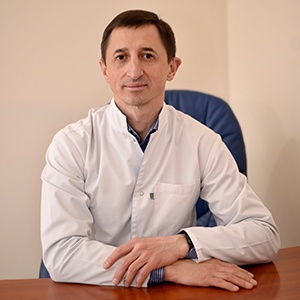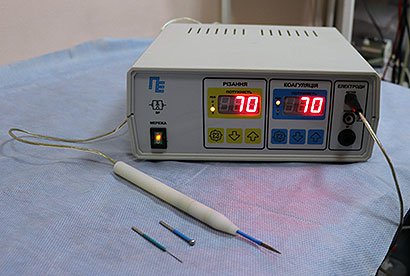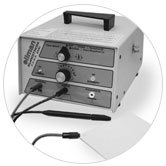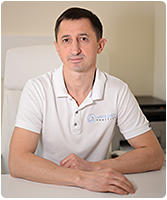

Removal of papillomas
| PAINLESS AND QUICK UROLOGICAL SURGERY IS A REALITY. |
If you need qualified medical care to removal papillomas - contact us!
Papilloma (human papillomavirus) - is a benign tumor-like growth of skin cells. In the case of the location of papillomas on the mucous membranes, they are often called condylomas. The most common cause of such neoplasms is human papillomaviruses. The duration of the incubation period on average is from 1 to 24 months. During this period, the virus does not manifest itself.
What is this virus?
- More than 100 types of human papillomavirus have been discovered in 50 years. Pathogenic for humans - 80 types.
- According to WHO, 70% of the world's population is infected with HPV.
- HPV types 16 and 18 are more likely to cause cervical cancer than other types.
- HPV is the vast majority of the cause of genital cancer in women and men.
- It will not be possible to cure HPV completely and forever. You can only temporarily suppress its development and prevent the appearance of formations.
- The most effective prevention against cancer of the cervix and genital organs throughout the world is the vaccine against types 6, 11, 16 and 18 of papillomaviruses.
Classification of HPV according to the degree of oncogenicity
- Non-oncogenic HPV types, that is, never causing cancer: 1, 2, 3, 4, 5, 10, 28, 49.
- Low-oncogenic HPV types (very rarely cause cancer): 6, 11, 13, 32, 34, 40, 41, 42, 43, 44, 51.72.
- Types of average oncogenic risk (average regeneration rate): 26, 30, 35, 52, 53, 56, 58, 65.
- High-oncogenic HPV types (high risk of cancerous degeneration): 16, 18, 31, 33, 39, 45, 50, 59, 61, 62, 64, 68, 70, 73. These HPV types of high oncogenic risk increase the risk precancerous and, as a result, cancerous diseases of the penis, anal canal, vagina and vulva.
Provoking factors (risk factors):
| chemotherapy; |
| taking hormonal drugs, etc.; |
| frequent change of sexual partners; |
| lack of contraception when having sex; |
| chronic diseases in the urogenital area; |
| hormonal disorders; |
| frequent hypothermia; |
| long-term intoxication of the body (taking antibiotics, drinking alcohol, smoking, etc.); |
| stress, malnutrition and similar factors that negatively affect the immune system; |
| self-medication with various means: lotions, creams, ointments, etc. |
The initial appointment with a urologist involves a thorough history taking and examination. The diagnosis is established by visual examination. However, before the appointment of the operation, the patient will need to undergo a series of diagnostic procedures, since this pathology has contraindications. |
 Operating doctor - urologist, doctor of the highest category Leonid Maksimenko |
How does a patient prepare for surgery?
These tips are worth listening to!
| Do not drink alcohol for a week before the operation. |
| Reduce cigarette smoking to a minimum. |
| Before the operation, the following laboratory tests are taken: |
| CBC |
| Glukose |
| HbsAg |
| RW |
| Urine test |
Indications for surgery:
The main indication is the manifestation of the disease - the occurrence of foreign growths on the mucous membrane or on the skin of the male genital organs, which are caused by a change in the functions of epithelial cells.
Make an appointment (consultation):
|
Phones:
Call:
|
|
The most optimal way to remove papillomas is with a radio knife.
A radio knife is a machine that uses high frequency radio waves to perform surgery. The waves are directed to the tissues using an electrode that concentrates the energy of the radio waves. This energy destroys cellular structures, they seem to evaporate, which eliminates bleeding.
|
Radio Knife Benefits:
|
 |
Why radio knife is better than laser:
| Allows you to control the depth of penetration of the device beam into the dermis as accurately as possible. |
| The area of damage to the surrounding tissue is 10 times smaller. |
| The recovery period is faster. |
How do we prepare a patient for surgery?
The right choice of clinic is a guarantee of a successful operation
| 1 | 2 | 3 |
| Before the surgery, the condition of the organs and systems of the patient's body is assessed in order to identify concomitant diseases in time. | Psychological preparation of the patient is carried out. It is important to relieve the patient of fear before the surgery. |
Before the surgery, an allergic history (allergy to medicines) is clarified. |
|
"In order to prescribe the most effective treatment for papillomas, it is necessary to distinguish them from other neoplasms of the mucous membranes and skin of the genital organs. It is possible to accurately determine the nature of neoplasms on the genital organs only using special diagnostic methods. Self-treatment is unacceptable. Any papillomas are a source of secondary self-infection: the virus can grow locally and spread throughout the body, causing the appearance of new formations on the skin and mucous membranes".
|
|
Removal of papillomas
| 1 | Removal of papillomas by radio wave method (from 10 pcs.) | 3500 hryvnias |
| 2 | Removal of papillomas by radio wave method (from 3 to 10 pcs.) | 2200 hryvnias |
| 3 | Removal of papillomas by radio wave method (up to 3 pcs.) | 1500 hryvnias |
| 4 | Preoperative consultation of a urologist | 500 hryvnias |
FEATURES OF NEOPLASMS ON THE GENITAL ORGANS
Papillomas can:
| get hurt and bleed; |
| spread and grow rapidly; |
| interfere with a normal sexual life; |
| disturb from a cosmetic point of view; |
| cause psychological discomfort. |
After operation:
The feeling of discomfort and pain are natural after the removal of the papillomas. But usually, already 1 day after the operation, the patient ceases to feel them. To avoid inflammatory processes and infection in the area of removal, special topical preparations are prescribed. Healing of postoperative wounds occurs in 4-7 days.
During rehabilitation, it is important to strictly follow the recommendations of the doctor so that there are no complications:
| daily hygiene; |
| touch the operated areas as little as possible; |
| daily treat postoperative wounds with an antiseptic; |
| refrain from intense physical activity and sexual intercourse; |
| visit a doctor 8-10 days after surgery - this is necessary to monitor the wound healing process and the possible manifestation of relapse. |
Why should you have surgery in our clinic?
- high efficiency;
- painlessness;
- rapid healing of tissues;
- bloodlessness of the operation;
- lack of seams and scab (rough burn surface).
If you have any questions, sign up for a consultation
 |
 |
 |
| No hospitalization required | Operations are done with radio knife |
The doctor is always in touch 24/7 |
 |
||
| Thorough postoperative care |
| Step 1 You are making an appointment. |
| Step 2 At the first visit, the doctor consults you, establishes a clinical diagnosis. If necessary, additional laboratory testing is carried out. The doctor decides on the need for surgical treatment. |
| Step 3 You have a surgery. |
| Step 4 You are healthy! The doctor writes preventive recommendations. |
If you have any questions, make an appointment (consultation):
|
Phones:
Call:
|
|


